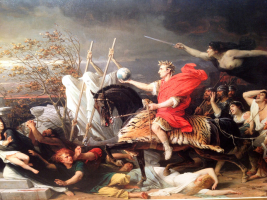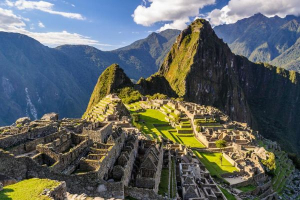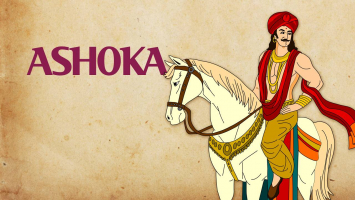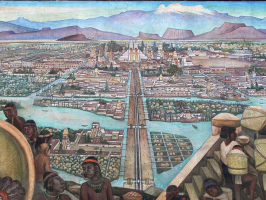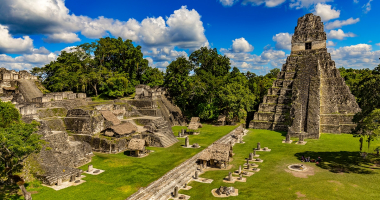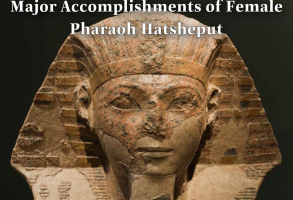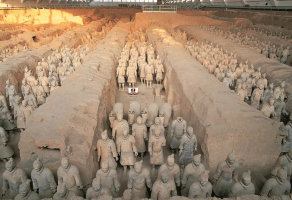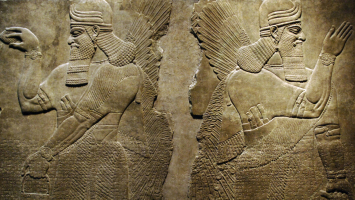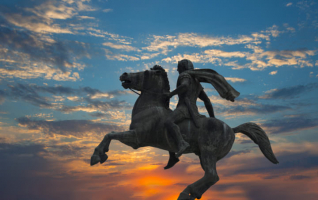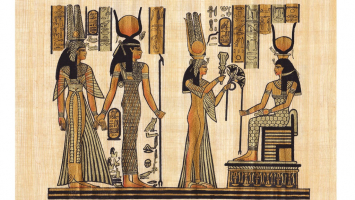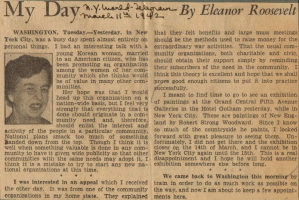Top 4 Major Achievements of Augustus Caesar
One of the most significant historical figures is Augustus. He put an end to the Roman Republic's collapse after decades of violent strife. He oversaw several ... read more...changes, from military to economic, that increased the Roman Empire's dominance and nearly doubled its size. A professional standing army that was entirely beholden to the emperor defended the new frontiers, and Augustus himself established the Praetorian Guard to protect the emperor and the royal family. Rome's and the surrounding provinces' landscapes were drastically altered by Augustus' enormous construction program. Rome was able to enjoy over two centuries of comparatively calm and security as a result of the emperor's efforts, which allowed it to develop into the superpower of the ancient. Here are 4 Major Achievements of Augustus Caesar that many readers do not know.
-
The resources that Augustus amassed as a result of his triumph against Antony and Cleopatra VII of Egypt were put to good use. He liberally donated to Rome's treasury. The Senate constantly turned to him whenever they ran into a problem in the provinces because of his enormous financial influence and the troops' allegiance. Senators eventually asked him to assume charge of the provinces, and he graciously complied but pretended to be hesitant. The provinces of Hispania, Gaul, Syria, and Cyprus all returned to his hands, and he also regained control of Egypt, making Augustus the most powerful person in Rome and on Earth at the time.
In contrast to the five or four legions that the Senate controlled, he effectively maintained control over more than 20 legions thanks to his enormous riches. It can also be said that one of the Major Achievements of Augustus Caesar is that he used his great financial strength to develop Rome. Even while Augustus publicly supported the fundamental principles of the Republic, he was working hard behind the scenes to establish his dynasty. Although it appeared from the outside that the Senate and the legislative assemblies held some type of authority, Augustus was actually in charge. This was made clear when the Senate bestowed upon him several titles, including tribune, censor, and supreme military commander.
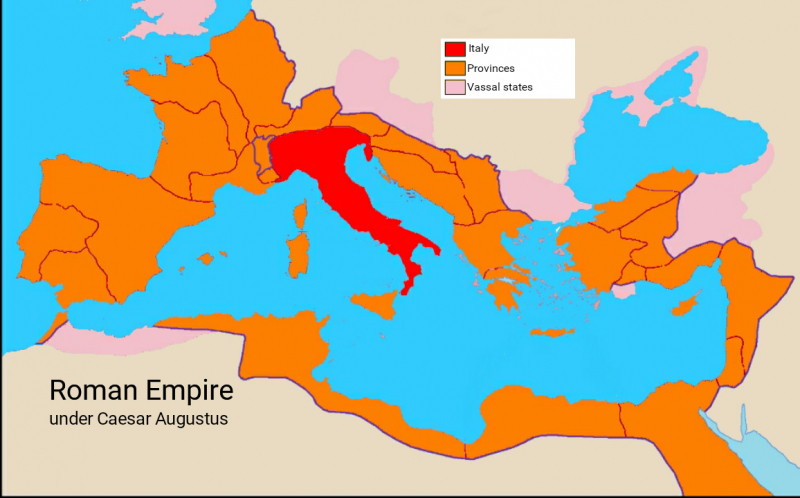
Roman Empire under Augustus - Photo: commons.wikimedia.org How did Augustus transform Rome? - Video: HistoryMarche -
Sextus Pompeius, the son of Pompey the Great, was yet another significant thorn in the side of Augustus during his reign. Pompeius received Sicily and Sardinia after the Second Triumvirate in an effort to appease him and avoid any conflicts with the triumvirs. The marriage of Augustus to Scribonia, the sister or daughter of Pompeius' father-in-law Lucius Scribonius Libo, cemented the connection with Augustus.
By forbidding grain supplies from the continent over the Mediterranean Sea to Italy, Sextus Pompeius endangered Augustus. To spread starvation throughout Italy, Pompeius' own son was assigned the position of a naval commander. As a result of Pompeius' mastery over the water, he adopted the moniker Neptuni Filius, which means "son of Neptune". The embargo on Italy was removed after Augustus gave Pompeius Sardinia, Corsica, Sicily, and the Peloponnese and guaranteed him a future seat as consul for 35 BC with the Treaty of Misenum, which established a temporary peace pact.
Once Augustus divorced Scribonia and wed Livia on January 17, 38 BC, the triumvirate's agreement with Sextus Pompeius about the division of their territories started to fall apart. One of Pompeius' naval captains betrayed him by giving Octavian control of Corsica and Sardinia. However, because of the lack of resources for Augustus to take on Pompeius alone, a deal was made to extend the Second Triumvirate for a further five years beginning in 37 BC.
In Sicily in 36 BC, Augustus and Lepidus together launched an offensive against Sextus. At the naval Battle of Naulochus, Augustus was able to defeat Sextus Pompeius with little assistance from Lepidus and Antony. Later, one of Antony's generals killed Pompeius. Sextus had fled east with his remaining men.
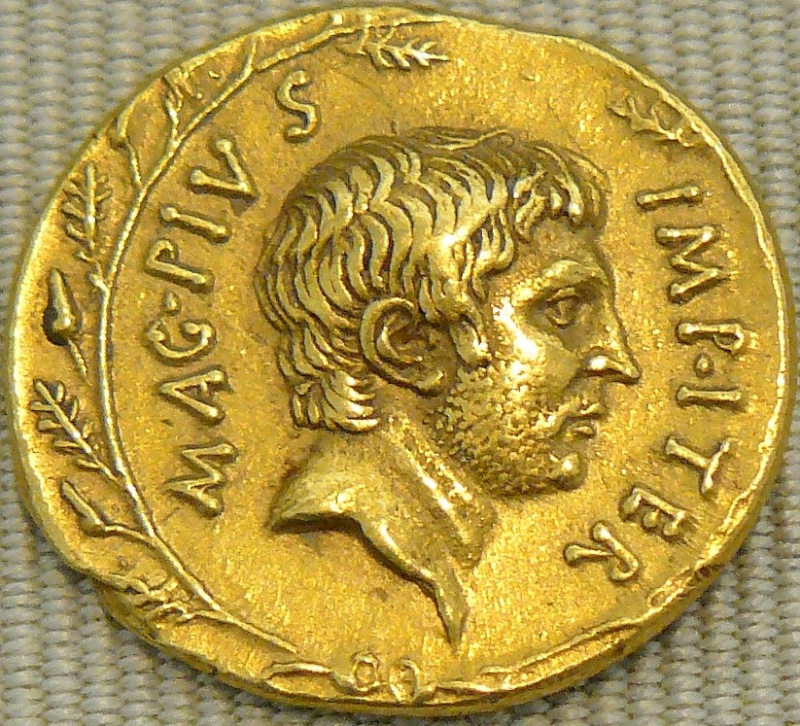
Sextus Pompey in an aureus - Photo: wikipedia.org 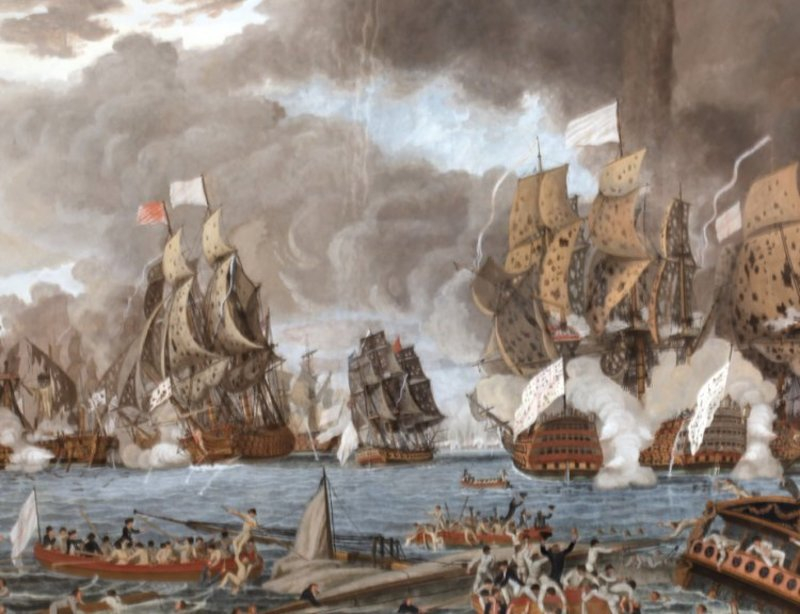
Battle of Naulochus - Photo: rallypoint.com -
After Julius Caesar was assassinated in 44 BCE (by a group led by Brutus and his ally Cassius), a number of ambition-driven factions fought for ultimate control of Rome. Being Caesar's successor, 19-year-old Octavian had to be cautious. Marcus Antonius, also known as Marc Antony, and Marcus Lepidus were opponents he had to deal with. The passing of Julius Caesar had been used by both men to consolidate their positions of power in Rome.
In 43 BCE, Augustus formed and joined the Second Triumvirate amidst all of this political scheming and a very brutal political climate. With the help of the triumvirate, Octavian was able to reconcile Lepidus and Antony. With the help of those supporters, Octavian was able to track out the perpetrators of his great-uncle Julius Caesar's murder using Proscriptions.
At the Battle of Philippi in Macedonia in 42 BCE, Augustus led the Second Triumvirate to victory over their adversaries (Brutus and Cassius) with his almost 30 legions. As they faced defeat, Cassius and Brutus killed themselves.
The triumvirs then divided the Roman Republic's provinces among themselves, thus acting as tyrants. Gaul and the Hispanic province were taken by Augustus (present-day Portugal and Spain). After moving to the east, Antony fell in love with Queen Cleopatra VII. Lepidus seized North Africa as his own territory.
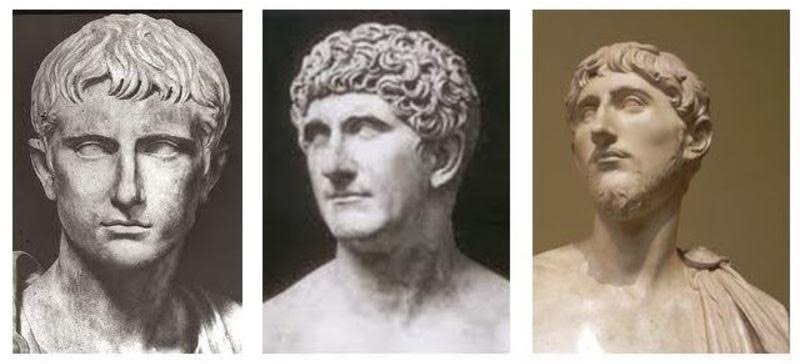
The second triumvirate - Photo: colosseum.info Clip from the mini-series "Imperium: Augustus", the 2nd Triumvirate, comprising Octavian, Lepidus, and Antony, is declared by the Senate of Rome in 43 BC - Video: Rick Davi -
It has been said that Augustus was quite happy with the infrastructure improvements he and his son-in-law Marcus Vipsanius Agrippa (Julia the Elder's spouse) completed: “I found a Rome of bricks, I leave to you one of marble.” Emperor Augustus once said.
One of the Major Achievements of Augustus Caesar is that he invested in many infrastructure projects. The Theatre of Balbus, the Baths of Agrippa, the Forum of Augustus with its Temple of Mars Ultor, and the Temple of Caesar are just a few of the significant structures that Augustus ordered. Agrippa, who served as both his second-in-command and valued advisor for a very long period, was given the task of building the Pantheon.
Emperor Augustus utilized the wealth from Egypt to construct a number of spectacular structures, including the Mausoleum of Augustus, which was constructed before his passing and was modeled after classical Greek architecture. Additionally, he properly funded a panel of five senators known as "Supervisors of Public Property" to care for the public structures and temples in Rome. The senatorial commission was another entity that oversaw road maintenance. They were known as "Supervisors for Roads”. Rome's substantial road networks were tremendously helpful in creating an effective official courier system.
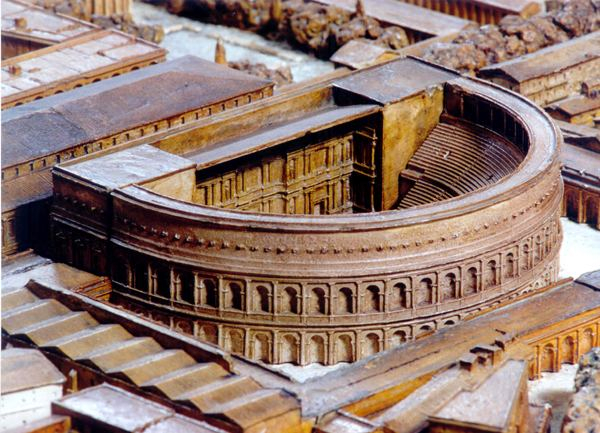
Theatre of Balbus - Photo: alchetron.com 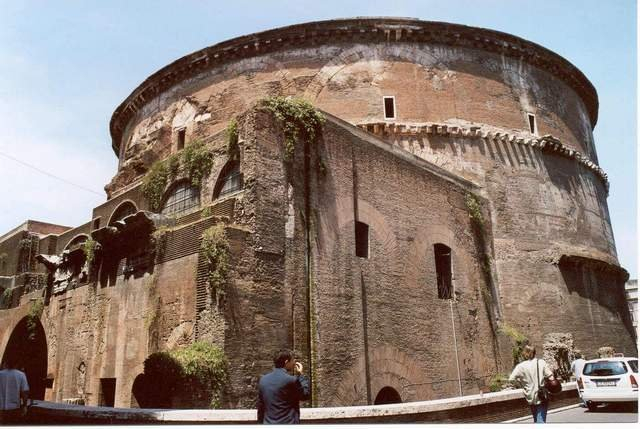
Baths of Agrippa - Photo: rogerpearse.com






